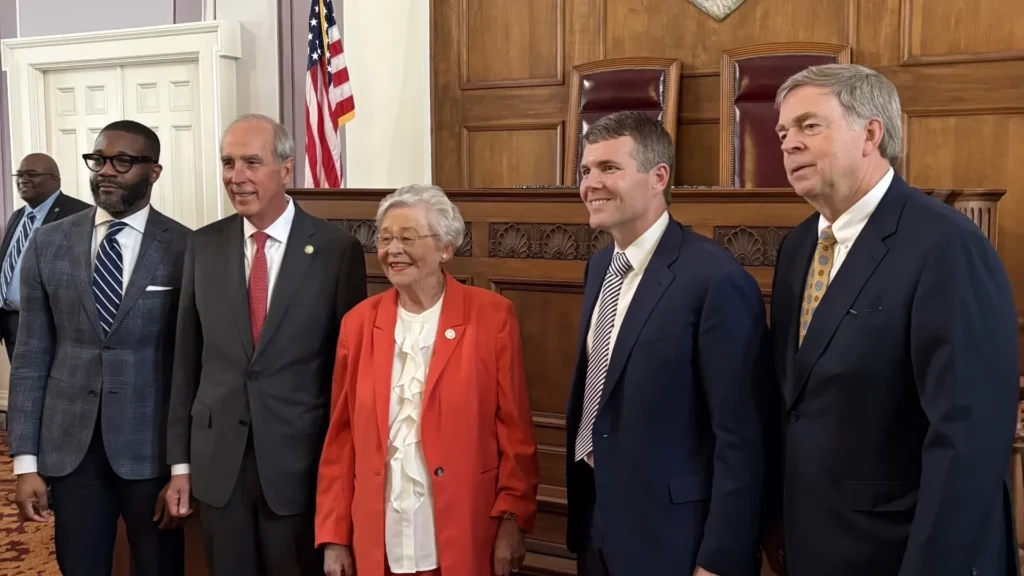Alabama’s Urban Leaders Push for Online Sales Tax Reform
A significant coalition of urban leaders in Alabama is backing a surge of lawsuits and legislative efforts aimed at updating the state’s outdated online sales tax system, stirring up discussions in Montgomery.
The Big 10 mayors, representing the state’s major cities, voiced their support for a lawsuit initiated by Tuscaloosa and Mountain Brook this week. They argue that the current framework, established a decade ago, unfairly disadvantages cities, schools, and small businesses.
“There’s a growing agreement on the need to address the SSUT through these lawsuits and various legislative initiatives regarding the unfair structure of online sales tax in Alabama,” the mayors noted in a joint statement. “The existing system is detrimental—it harms local governments, schools, and small businesses. It’s time for a change.”
Introduced in 2016, the Simplified Sales Use Tax (SSUT) enables online sellers to charge a flat 8% sales tax. Initially, the system aimed to encourage voluntary compliance. However, after the US Supreme Court’s decision in South Dakota v. Wayfair (2018), which allowed states to mandate tax collection from online sellers, the rationale for a fixed rate has largely vanished. Yet, Alabama’s system remains stagnant.
Currently, half of the revenue generated through SSUT goes into the state’s general fund, while the other half is allocated to cities and counties based only on population, disregarding where purchases occur or are delivered. Local leaders warn that this arrangement may drain vital resources from the communities that actually drive economic growth.
Tuscaloosa Mayor Walt Maddox pointed out that the city is losing between $14 million and $15 million annually due to this issue. The city council and its school board have voted to pursue legal action against the state for those lost funds, with Mountain Brook joining the effort.
“If a product is bought and delivered in Tuscaloosa, the revenues should reflect that local contribution,” Maddox remarked in an interview with NBC affiliate MyNBC15. “It’s simply not equitable or sustainable.”
The mayor described the current system as particularly flawed. It effectively robs local cities of earnings, giving online retailers a competitive advantage over brick-and-mortar stores. While local sellers are required to charge the full local and state sales taxes, which can exceed 10%, online sellers only collect the standard 8%.
During a recent legislative session, D-Tuscaloosa representative Chris England introduced a bill aimed at increasing the SSUT rate to 9.5%, with an additional 1.5% targeting cities and public education. Although the bill didn’t make significant headway, proponents are hopeful it will be revisited in 2026.
“We’re at a critical juncture,” the mayor asserted. “Alabama’s communities deserve a tax structure that mirrors modern business transactions, supports local economies, and adequately funds public services to advance the state.”
The rising tide of lawsuits and bipartisan pressure may ultimately compel state leaders to acknowledge what urban areas have understood for years: Alabama’s online tax system is fundamentally flawed.







